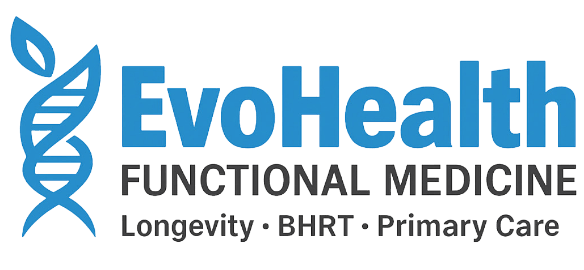What is Gut Health?
Gut health encompasses the interaction between the microbiome and our overall physiology.
The microbiome is the collective term for the microorganisms that live in and on our bodies, including bacteria, viruses, fungi, and protozoa. The largest concentration of these microorganisms is found in the gut, but they can also be found on the skin, in the mouth, and in the reproductive and respiratory tracts.
These microorganisms play an important role in many physiological processes, including digestion, nutrient absorption, and immune system function. They also contribute to our overall health and well-being, as imbalances in the microbiome have been linked to a variety of health conditions like digestive disorders, mood imbalances, and cardiometabolic disorders.
Gut health can be further characterized into 5 categories including:
- Digestion: The gut’s ability to break down and absorb nutrients from food.
- Microbial balance: The presence of a diverse and healthy community of microorganisms, including bacteria, viruses, and fungi, in the gut.
- Immune function: The gut’s role in supporting the body’s immune system and protecting against harmful pathogens.
- Inflammation levels: Low levels of inflammation in the gut are associated with good gut health, while high levels can lead to digestive issues.
- Motility: The normal movement of food through the digestive tract.
A healthy gut can contribute to overall well-being and can help prevent or manage conditions such as irritable bowel syndrome, inflammatory bowel disease, and mood disorders.

Functional Medicine & Gut Health
Gut health is a central focus in Functional Medicine as the gut is often considered the “root” of many health problems. At EvoHealth Kansas Functional Medicine we have the ability to assess gut health through various methods including, but not limited to: symptoms, stool analysis, breath tests, and food intolerance testing. The goal is to identify and address imbalances within the gut microbiome (microorganisms living in the gut) and the digestive system to improve overall health and alleviate symptoms related to gut-related disorders such as irritable bowel syndrome (IBS), inflammatory bowel disease (IBD), and other digestive issues.

![]()
![]()
Gut Health Treatments
Functional Medicine treatments for gut health may include:
- Dietary modifications: Recommendations may include removing certain foods that may trigger symptoms, adding prebiotic and probiotic-rich foods to support gut microbiome, and optimizing nutrient intake.
- Supplements: A functional medicine practitioner may recommend specific supplements such as probiotics, digestive enzymes, and immunoglobulins to support gut health and address any deficiencies.
- Lifestyle interventions: Recommendations may include stress management techniques, exercise, and changes in sleep habits to support gut health.
Note: Every person’s gut health and treatment plan is unique, so the specific recommendations and treatments will depend on individual evaluation and assessment by a functional medicine practitioner.
EvoHealth Kansas Functional Medicine
At EvoHealth Kansas Functional Medicine we address the underlying causes of your digestive issues and develop a personalized treatment plan to help you optimize gut health.
If your gut health is suffering, schedule a Free Functional Medicine Consultation with Dr. Tanner Wilson, DC, IFMCP today @ (785) 448 8796
Dr. Tanner Wilson, DC, IFMCP is the founder of EvoHealth Kansas Functional Medicine. His practice focuses on implementing lifestyle, dietary, and evidence-based supplementation interventions to effectively manage chronic disease conditions.
